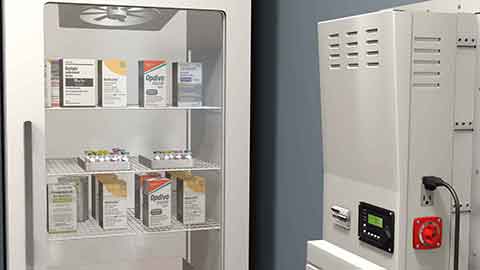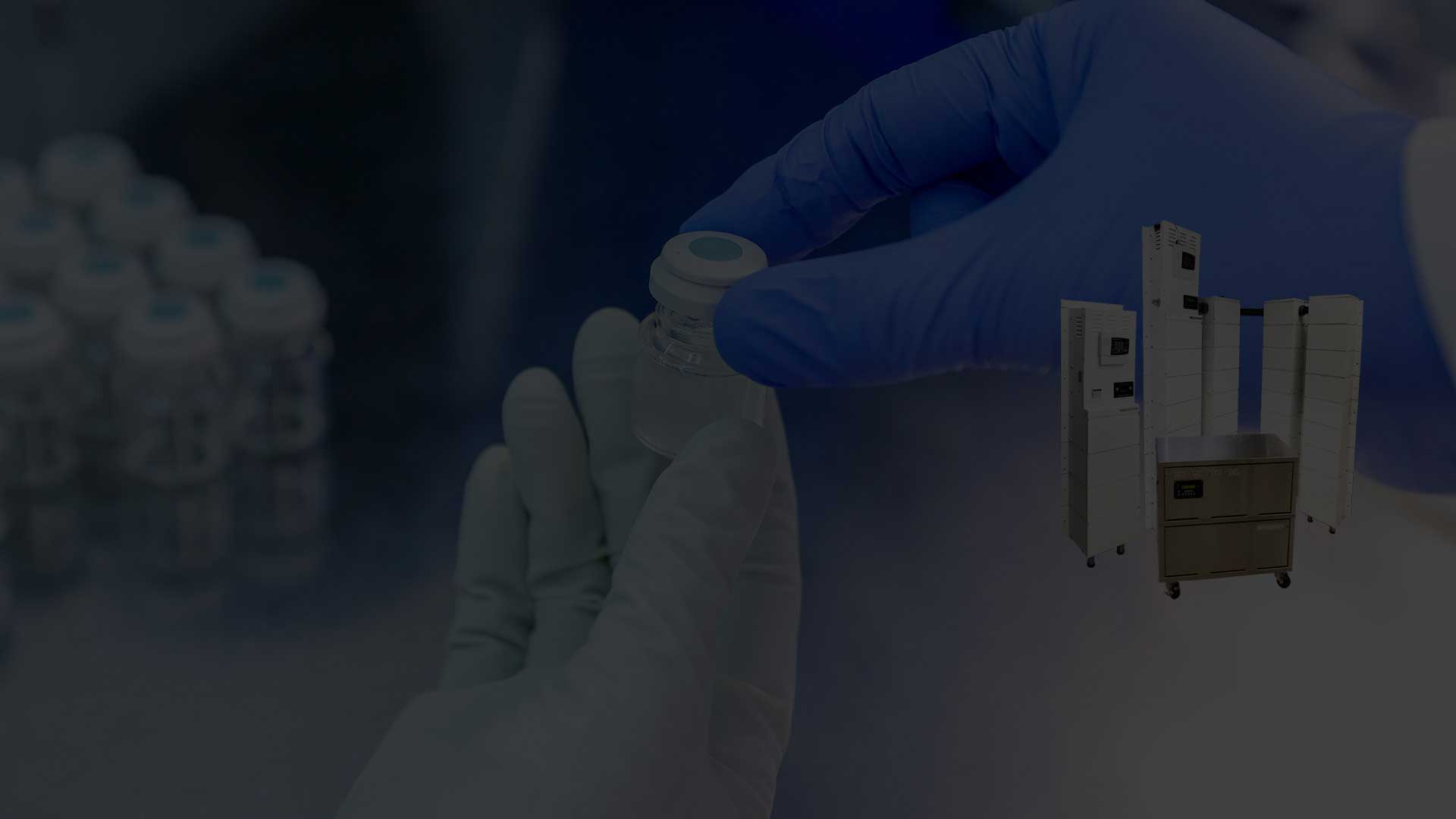AGM Lead Acid Batteries VS Lithium Ion
Many a conversation have been had about whether or not a Lithium Ion Battery is a better product than AGM (Absorbent Glass Mat) Lead Acid Battery . The first question you have to ask yourself when deciding on battery power, what am I using the battery for? Do I want high energy density? Or would I prefer a more refined and mature battery chemistry?
For Example, in systems produced by us—Medi-Products—our batteries are deployed in our line of backup power systems. This creates a situation where the batteries we use need to be able to function while being subject to long standby times between discharges. Additionally, when they DO finally need to be engaged during a power outage, they'll need to be able to discharge a large amount of power very quickly.
So for our particular use case, choosing AGM lead acid batteries over lithium-Ion batteries provide a plethora of advantages such as:
- Lead Acid Batteries are more affordable and simpler to manufacture which leads to more affordable pricing for us—and by extension the end user.
- The technology has been around for a while, creating a mature, reliable, creating a low-maintenance product with a understood ecosystem of support and research behind it .
- Lead Acid Batteries are capable of high discharge rates and low self-discharge rates (i.e. They'll be fully charged when you need them to deploy, and be able to quickly deploy their power when called up
- Because they use fiberglass mats as an active material to contain the electrolyte, AGM Batteries are leak-proof and can be positioned freely
While there are many advantages to lead acid batteries, there are also many disadvantages to lead acid batteries once must consider.
- They have a limited “Usable” capacity, which means it is typically considered wise to use only 30% - 50% of the rated capacity.
- They have limited cycle life, which means that even if the user is very careful to never over drain the battery, they still are only good for 500-1000 cycles.
- They have a slow and inefficient charge.
However, most of these disadvantages do not apply to the need we are filling and the equipment we support. This is because our battery backup systems don’t disperse power until the electric goes out. This means that our batteries are not regularly being discharged, so they do not need to be recharged and the battery only drains once.
Lithium batteries are great for something like electric cars, but they too have their advantages and disadvantages. Some advantages are:
- They have low maintenance
- They have a low self-discharge rate
- They have a higher energy density
Some disadvantages of these batteries are:
- Requires a protection circuit
- The batteries are subject to aging if not used
- They only have a moderate discharge current
- They are subject to transportation regulations
- They are expensive to manufacture
- They are a newer technology, so they are not fully mature
Both Batteries have their advantages and disadvantages allowing them to have two different primary uses. Below is a table of some of them:
Lithium Ion Uses
Lead Acid Uses
Solar Energy
Hand Held Devices (I.e. cell phones, tablets)
Storage
Battery Backup Systems
Computers
Fire and Security Alarms
Mobility
Which Kind Of Battery is Best for Emergency Backup Power?
Once everything is taken into consideration, there is no wrong answer for which is best—sorry. Like most decisions, weighing the pros and cons—deciding which compromises are deal breakers and which are not is what will lead you to your decision.
However, when deciding on which is best suited for an emergency situation, We at MediProducts have chosen to leverage the maturity, reliability and stability of AGM lead acid battery technology—as we find these characteristics are ideal for deployment in the life or death situations that can be found in medical offices and ambulatory surgery centers.
In time this reality may change due to the rapid improvements in lithium-Ion technology that can be attributed to the electric car manufacturing race. For now though, because reliable backup power is what we aim to provide, AGM Lead Acid is the best choice for now.
Learn More About Battery Backup Power
To answer even more of your questions and find additional solutions to problems that could affect your medical facility or laboratory, check out these other articles from the Medi-Products blog and the Medi-Products Learning Center:
Where can I Purchase New/Replacement Batteries For my Rechargeable Generator?
What Kind of Batteries Are in a Rechargeable Generator?
How Much Time Can a Battery Generator Can Run For?


